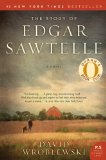Summary | Excerpt | Reviews | Beyond the book | Read-Alikes | Genres & Themes | Author Bio

A mythology for a modern age -- complete with dark prophecy, family dysfunction, mystical deceptions, and killer birds. Not to mention a lime.
Anansi Boys
God is dead. Meet the kids.
When Fat Charlie's dad named something, it stuck. Like calling
Fat Charlie "Fat Charlie." Even now, twenty years later, Charlie
Nancy can't shake that name, one of the many embarrassing "gifts"
his father bestowed -- before he dropped dead on a karaoke stage
and ruined Fat Charlie's life.
Mr. Nancy left Fat Charlie things. Things like the tall,
good-looking stranger who appears on Charlie's doorstep, who
appears to be the brother he never knew. A brother as different
from Charlie as night is from day, a brother who's going to show
Charlie how to lighten up and have a little fun ... just like Dear
Old Dad. And all of a sudden, life starts getting very interesting
for Fat Charlie.
Because, you see, Charlie's dad wasn't just any dad. He was
Anansi, a trickster god, the spider-god. Anansi is the spirit of
rebellion, able to overturn the social order, create wealth out of
thin air, and baffle the devil. Some said he could cheat even
Death himself.
Returning to the territory he so brilliantly explored in his
masterful New York Times bestseller, American Gods, the
incomparable Neil Gaiman offers up a work of dazzling
ingenuity, a kaleidoscopic journey deep into myth that is at once
startling, terrifying, exhilarating, and fiercely funny -- a true
wonder of a novel that confirms Stephen King's glowing assessment
of the author as "a treasure-house of story, and we are lucky to
have him."
With a smaller cast of central characters than American Gods, Gaiman is in his element with Anansi Boys. Stories that retell myths are two-a-penny but stories that flow with the gleeful confidence of Anansi Boys are much rarer...continued
Full Review
(526 words)
This review is available to non-members for a limited time. For full access,
become a member today.
(Reviewed by BookBrowse Review Team).
Anansi is one of the gods in West African mythology, sometimes depicted in human form, sometimes as a spider, sometimes as a hybrid. He's tricky, greedy and lustful, but he's also good-hearted, lucky, and although often bad, never evil. The legends are believed to have originated with the Ashanti tribe (from Ghana) but spread through the Akan people (the Akan being a number of different West African tribes linked by a shared language). As the son of Nyame, the sky god, some myths said that Anansi created the sun, the stars and the moon, and
taught mankind how to farm. He is also considered the King of All Stories.
Anansi himself was only caught once, when he was tricked into fighting a tar-baby - and if that story...
This "beyond the book" feature is available to non-members for a limited time. Join today for full access.

If you liked Anansi Boys, try these:

by David Wroblewski
Published 2009
Born mute, speaking only in sign, Edgar Sawtelle leads an idyllic life with his parents on their farm in remote northern Wisconsin. But his life is plunged into chaos as his uncle returns, his father suddenly dies, and he is forced to flee into the wilderness with only three yearling dogs for company.

by Joe Hill
Published 2008
A multiple-award winner for his short fiction, author Joe Hill immediately vaults into the top echelon of dark fantasists with a blood-chilling roller-coaster ride of a novel, a masterwork brimming with relentless thrills and acid terror.
The longest journey of any person is the journey inward
Click Here to find out who said this, as well as discovering other famous literary quotes!